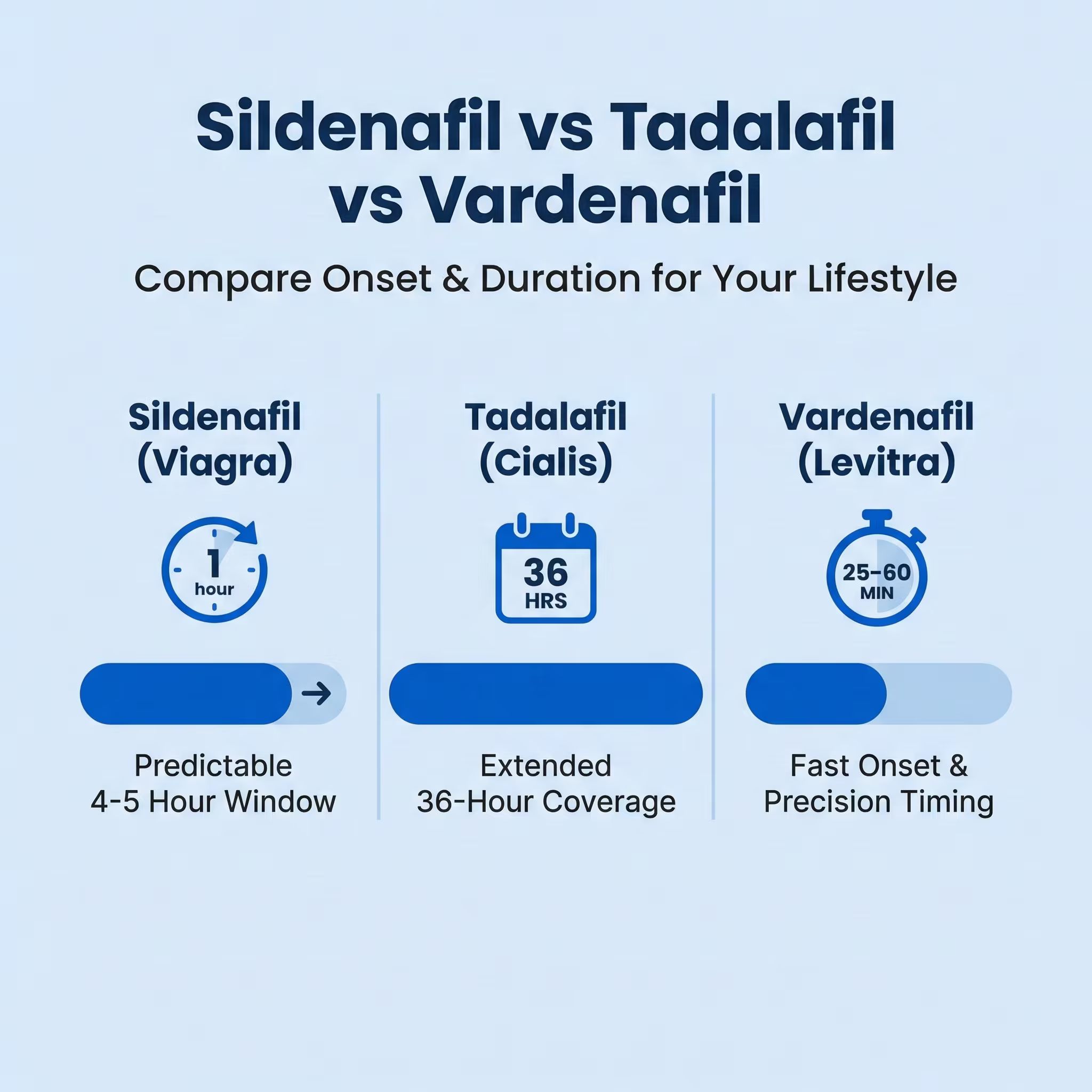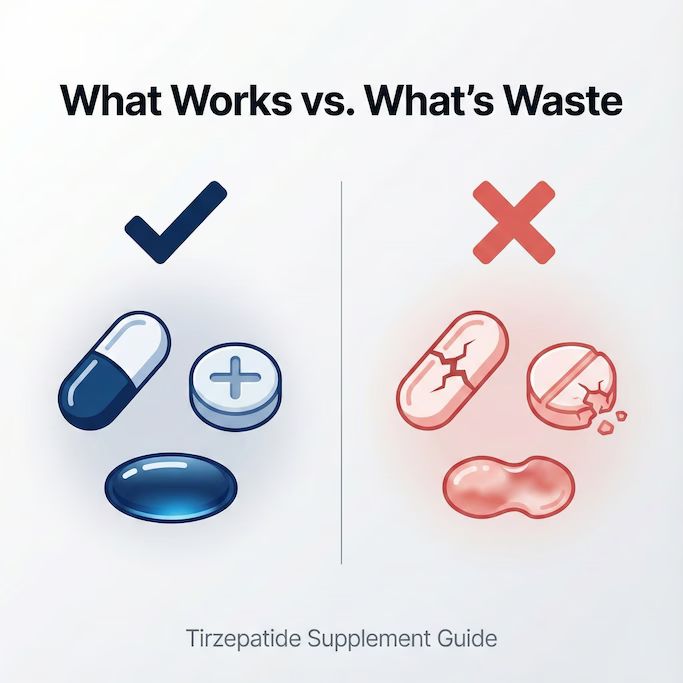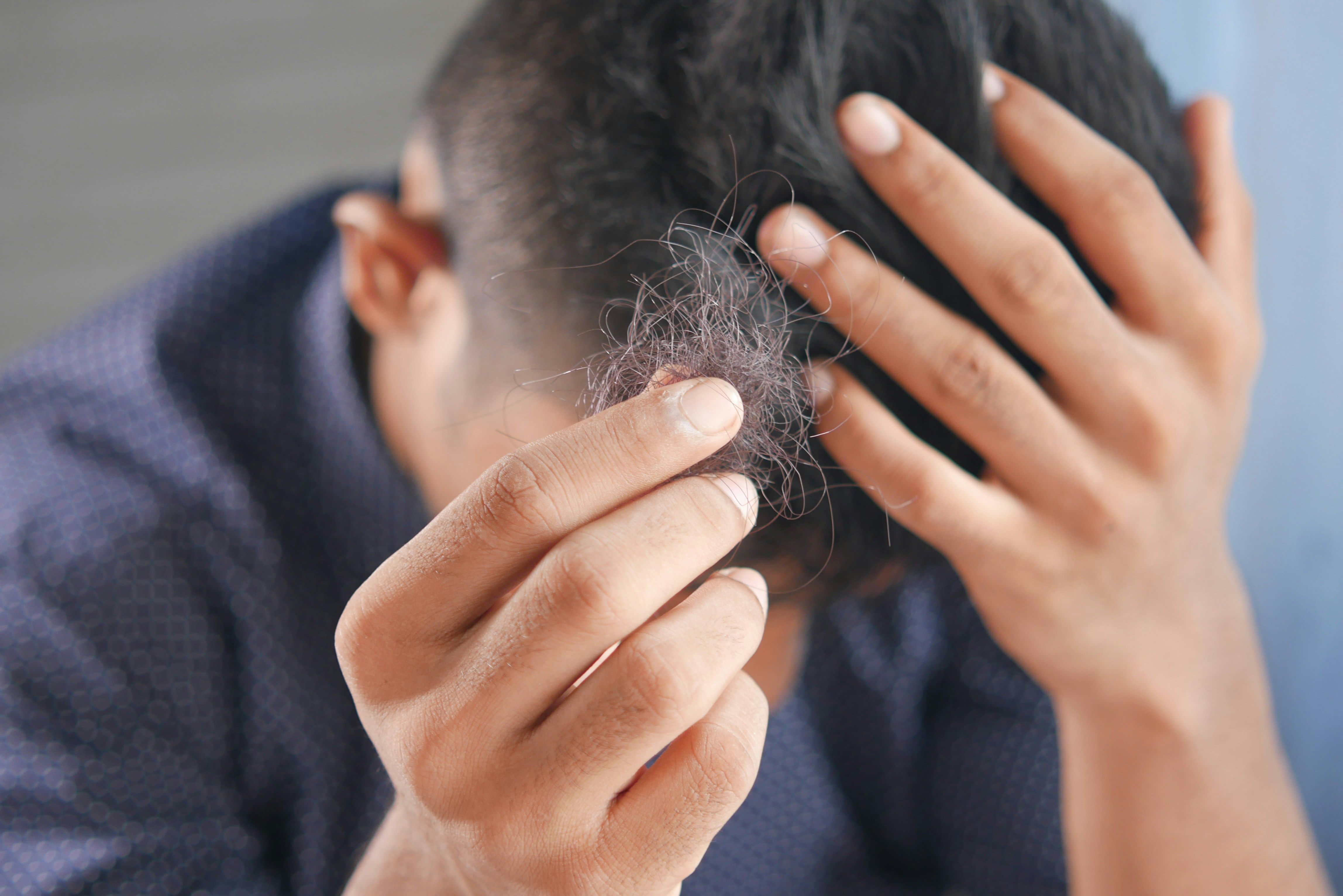Key takeaways:
- Every day, about 10% of testosterone converts to the hormone dihydrotestosterone (DHT), which is known to play a role in hair loss in those who are genetically predisposed.
- Elevated DHT levels have been linked to hair follicle shrinkage and subsequent hair loss.
- Studies suggest enclomiphene does not disproportionately increase DHT, reducing the likelihood of hair loss.
While there are many contributing factors to hair loss, from genetics to stress, one potential factor is high testosterone. More specifically, this hair loss is related to high levels of a hormone called dihydrotestosterone (DHT), which is a byproduct of testosterone. Some people assume that taking a medication like enclomiphene will cause hair loss because it boosts testosterone levels. But the truth is more complex than that.
In this article, we’ll explore the relationship between enclomiphene and hair loss, what genetics have to do with it, and what to do if baldness runs in your family.
What causes hair loss?
According to the American Academy of Dermatology, the most common form of hair loss is hereditary hair loss, also known as male pattern baldness, female pattern baldness, or androgenic alopecia. With this type of hair loss, inherited genes cause your hair follicles to shrink over time — the end result is that you’ll stop growing hair. This can start as early as your teenage years, but often occurs later.
Some other potential causes of hair loss include:
- Age
- Autoimmune diseases like alopecia areata
- Cancer treatment
- Stress
- Illness
- Scalp infections
- Medications like beta blockers, retinoids, calcium channel blockers, and antidepressants
- Hormonal imbalances
How are testosterone and hair loss related?
Every day around 10% of your testosterone is converted to the hormone DHT with the help of the enzyme 5-alpha reductase. DHT plays a critical role in male sexual development throughout fetal development and puberty, contributing to prostate growth and masculine features like increased body hair. But research shows that in adults, DHT does not have a significant role in male physiology anymore.
When DHT levels get too high, they can overstimulate the hair follicles, causing them to shrink and resulting in hair loss. Other problems can also arise when DHT levels get too high, like an enlarged prostate. It’s not that DHT attacks these areas of the body, but it can speed up activity to the point that your body cannot keep up.
But, there’s a catch. Not all men react to high DHT levels the same way. Genetics play a big role here in determining how susceptible someone is to the effects of DHT on their hair follicles. Often, this comes down to variations in their androgen receptor (AR) gene, which helps the body make androgen receptor proteins, which enable hormones like DHT and testosterone to bind properly and facilitate normal hormonal processes. But when there are mutations in the AR gene, these processes malfunction, leading to an increase in 5-alpha reductase, the enzyme responsible for converting testosterone to DHT, and higher receptivity in the hair follicles.
If you’ve ever wondered why male pattern baldness often begins with a receding hairline, it’s because there are 1.5 times more androgen receptors in the frontal scalp region.
Does enclomiphene cause hair loss?
Taking enclomiphene should not lead to hair loss, though someone might still experience hair loss while taking enclomiphene if they are genetically predisposed to male pattern baldness. The medication increases total and free testosterone, but studies show it will not increase DHT disproportionately. This reduces the likelihood of experiencing hair loss while taking enclomiphene.
It’s worth noting that some individuals taking clomiphene citrate (which contains enclomiphene) have reported hair loss; however this side effect occurred in less than 1% of study participants, and they were female. Still, more research is needed to provide us with more information about the long-term effects of enclomiphene on hair follicles. Until then, hair loss as a side effect appears unlikely.
What side effects should I expect on enclomiphene?
Like any medication, enclomiphene comes with a risk of side effects, but most of them are considered mild and rare. While you may not experience hair loss while taking enclomiphene, there’s a chance you may experience the following:
- Headache
- Nausea
- Diarrhea
- Common cold symptoms
- Hot flush
- Dizziness
- Joint pain
Compared to other testosterone treatments, enclomiphene is a natural, more hair-friendly option.
Disclaimer: The contents of this article, including, but not limited to, text, graphics, images, and other information, is for information purposes only and does not constitute medical advice. The information contained herein is not a substitute for and should never be relied upon for professional medical advice. The content is not meant to be complete or exhaustive or to be applicable to any specific individual's medical condition. You should consult a licensed healthcare professional before starting any health protocol and seek the advice of your physician or other medical professional if you have questions or concerns about a medical condition. Always talk to your doctor about the risks and benefits of any treatment. Never disregard or delay seeking professional medical advice or treatment because of something you have read on this site. Maximus does not recommend, endorse, or make any representation about the efficacy, appropriateness, or suitability of any specific test, products, procedures, treatments, services, opinions, healthcare providers or other information contained herein. Maximus is not responsible for, nor will they bear any liability for, the content provided herein or any actions or outcomes resulting from or related to its use.










